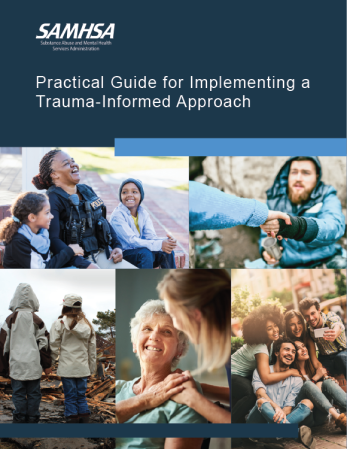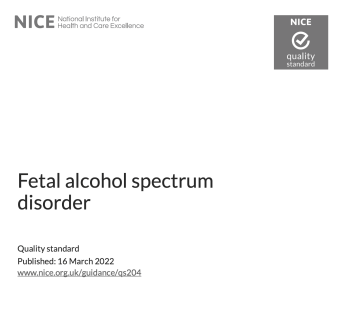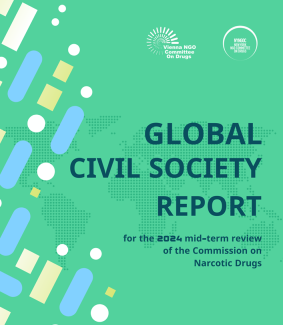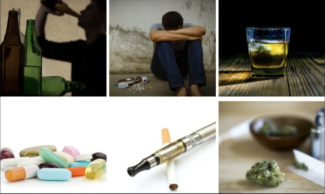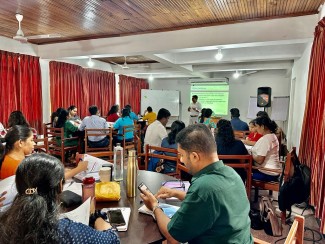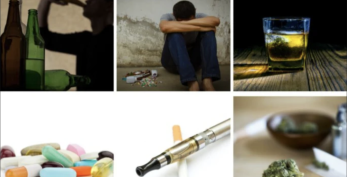
Search
Quality Assurance
The application and integration of the best available research, clinical expertise, quality marks and patient preferences to ensure high-quality care in substance use disorders services.
Global Civil Society Report for the 2024 mid-term review of the Commission on Narcotic Drugs
The Vienna & New York NGO Committees on Drugs are pleased to present the global civil society report for the 2024 mid-term review of the Commission on Narcotic Drugs (CND).
The report is the result of constructive inputs by more than 200...
Selected Lifestyle Factors of Candidate Sperm Donors and Their Effect on Spermiogram Values in the Moravian Part of the Czech Republic. Study Protocol
INTRODUCTION:
Male infertility affects nearly 14% of men in Europe, and approximately 44% of them are unaware of the cause of their infertility. Thanks to the plentitude of research, we can now clearly define the risk factors that...
Rehabilitation of Executive Functions in Users of Addictive Substances. Study Protocol
BACKGROUND:
Substance use increases the risk of damage to executive and cognitive functions. Manifested by a range of clinical symptoms, such impairments may affect people’s coping with everyday activities and their abilities to...
Review of Competency-Based Models and Quality Standards in Training and Education in the Addiction Field: Study Protocol
BACKGROUND:
There is a growing trend of development and improvement of education and training in the field of addictions, hand in hand with the increase and changes of substance use-related issues. To ensure a high level of education...
“I’m almost opioid-a-phobic”: family medicine residents’ perceptions of enhancing opioid analgesic and agonist treatment training in a Canadian setting
Purpose
As deaths from the illicit drug poisoning crisis continue to rise in Canada, increasing the number of healthcare professionals qualified to effectively prescribe opioids could be beneficial. The willingness of family medicine...
WAVE Bursaries to attend Lisbon Addictions 2024
Stigmatizing imagery for substance use disorders: a qualitative exploration
“Safer Drug Supply” Measures in Canada to Reduce the Drug Overdose Fatality Toll: Clarifying Concepts, Practices and Evidence Within a Public Health Intervention Framework
In North America, there's a serious problem with drug overdose deaths, mainly due to users encountering very strong and dangerous illegal opioids like fentanyl. Although various efforts have been made in Canada to address this issue, the...
Prevención basada en la evidencia

This project is dedicated to promoting evidence-based prevention of alcohol and drug abuse. It serves as a valuable resource for professionals and policy-makers, offering carefully selected, high-quality...
Green List Prevention

The "Green List Prevention" in Germany encompasses a rich array of programmes aimed at preventing various behavioural issues among children and young individuals, including violence, crime, and addictive behaviours. These...
Addiction professionals from Central Asia enhanced knowledge on working with population with special clinical needs
The UNODC Regional Office for Central Asia held a Regional Training of Trainers (ToT) on Course 20 – “Populations with Special Clinical Needs” which took place in person in Dushanbe, Tajikistan on 23-27 October 2023. This course is a part...
Cannabis and amphetamine use among school-going adolescents in sub-Saharan Africa: a multi-country analysis of prevalence and associated factors
Who Helps The Helper? A Skills Transfer Program for Behavioural and Substance Use Professionals
Development of an addiction recovery patient-reported outcome measure: Response to Addiction Recovery (R2AR)
Background:
Recovery, a primary goal of addiction treatment, goes beyond abstinence. It encompasses various aspects that differ among individuals, making it challenging to measure. Traditional assessments in addiction care have focused...
Substance Use Disorders (SUD) and Type 2 Diabetes: Integration of Evidence-Based Diabetes Care to Promote Quality Health Outcomes
4th National Youth Convention (Impacts & Prevention of Substance Use Among Youth Anti-Drug Poster Competition & Cultural Show) Organized by ISSUP Pakistan in Collaboration with Quaid-E-Azam University, on 6th July, 2023 at Islamabad-Pakistan
4th NATIONAL YOUTH CONVENTION
(IMPACTS & PREVENTION OF SUBSTANCE USE AMONG YOUTH Anti-Drug Poster Competition & Cultural Show)
Organized by ISSUP PAKISTAN in Collaboration with QUAID-E-AZAM UNIVERSITY, on 6th July 2023 at ISLAMABAD...
Systematic Review of Quality Standards in Competency-Based Postgraduate and Continual Addictology Education of Physicians: Study Protocol
BACKGROUND: The role of physicians is crucial in the prevention and treatment of substance use disorders and addiction. The quality of addiction-specific medical education varies, as do postgraduate and continuing medical education...
Development of an addiction recovery patient-reported outcome measure: Response to Addiction Recovery (R2AR)
Background:
Recovery, a primary goal of addiction treatment, goes beyond abstinence. Incorporating broad domains with key elements that vary across individuals, recovery is a difficult concept to measure. Most addiction-related quality...
Training on UTC 03 - Sri Lanka
Psychoactive substance use and substance use disorders (SUDs) remains remain to be a major problem around the world. Which is negatively effect on global health and social and economic functioning. Though people who suffer from SUDs...
The absence of data on driving under the influence of alcohol in road traffic studies: a scoping review of non-randomized studies with vote counting based on the direction of effects of alcohol policies
Background
Data concerning driving under the influence of alcohol (DUIA) are frequently characterised by their lack of availability, accuracy, or reliability. This inherent limitation poses challenges in the examination of the influence of...
Share the Knowledge: ISSUP members can post in the Knowledge Share – Sign in or become a member
